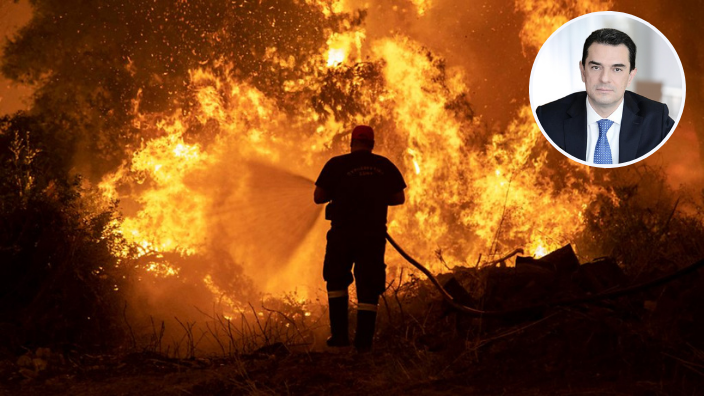Greece passed its first-ever climate law on Thursday, which sets out specific targets to fight climate change and wean itself off coal in power generation by 2028.
The legislation sets interim targets for Greece to cut greenhouse emissions by at least 55% by 2030 and by 80% by 2040 before achieving zero-net emissions by 2050.
It also engages the country to cut dependence on fossil fuels, including weaning off indigenous lignite or brown coal, from 2028 onwards.
Before the vote in Greek Parliament, Greek Energy Minister, Kostas Skrekas, told lawmakers the legislation will not only help protect the environment, but the country’s energy security as well.
“It’s an existential matter, a very important one, because it has to do with our lives, because it has to do with our children’s lives,” Skrekas added.
The legislation has received a mixed response from environment groups, such as Greenpeace, and the main Opposition Party in Greece, SYRIZA-Progressive Alliance.
SYRIZA leader, Alexis Tsipras, said the law was not designed to protect the environment but to protect the profits of big business, while passing on the cost to society as a whole.
Firefighters from six European countries to be deployed to Greece:
The passing of this climate law in Parliament comes as Greek Prime Minister, Kyriakos Mitsotakis, was briefed on Thursday on Greece’s readiness ahead of the summer wildfires season.

During a meeting of the Climate Change & Civil Protection Ministry, Mitsotakis was informed of the significant increase of ground and air surveillance at high-risk fire areas, to prevent arson and provide timely fire alerts.
In high-risk areas, Greek armed forces will take on patrolling tasks, freeing up valuable human resources in the Fire Brigade and the police.

Advance detachments of firefighters from six European countries – Bulgaria, Romania, Germany, France, Finland and Norway – will also arrive in Greece ahead of the fire season.
These units, which will be based in Athens, Larissa and Tripoli, are being funded by the European Commission.
For the first time ever, civil protection evacuation procedures are also being drawn up for high-risk areas in tourist spots, as well as archaeological sites.
Source: Ekathimerini and AMNA.gr.

